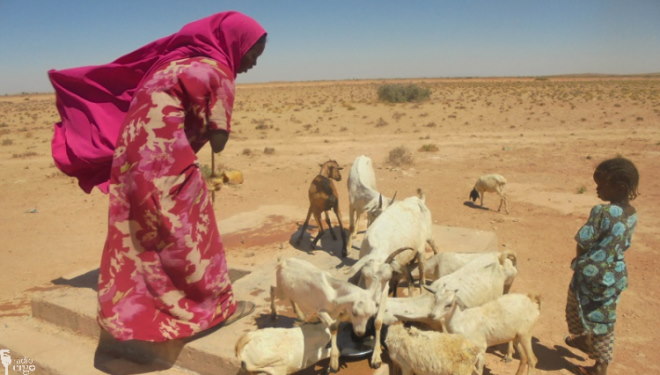
are Adan Abdulle has lost almost half his cows due to the acute lack of water and pasture in a rural part of Wajir county in Kenya’s Somali-speaking northeast. He is feeding the remaining 80 cows, his family’s lifeline, just once a week with grain bought on credit from local shops.
“I don’t have money to buy them grain let alone renting a truck to bring water. There is no pasture at all in the grazing field. We feed the cows in their pens,” he said. “These livestock don’t have any market value.”
The Kenyan government declared the drought a national disaster on 8 September. Seventy of Bare’s cows have died over the past four months.
His animals are too weak to walk to the nearest well in Eyrib village, 18 km away. He bought 2,000 litres of water on credit early in October which is almost finished. With debts of $200, the private water truckers are not likely to sell him any more water until he repays what he owes. The story is the same at the food stores.
Bare, 48, a father of eight, is being helped by his son to look after the poorly cows as the rest of the family fled to Eyrib to stay with a relative. He does not hold out much hope for his herd.
Adan Abdow Omar has lost 54 cows in the rural village of Buur-dheer in Wajir since September, leaving him with a depleted herd of 21 cows.
“There is no pasture at all. For the last four months, the cows were drinking water I bought on credit from water trucks. I have accumulated 376,800 Kenya shillings ($3,456) in debts, and I don’t have anything to pay back with,” he said.
Adan’s family of 10 children is now surviving on one meal a day. He takes the food on credit from a local shop.
“I feel like disappearing for good because the cows I borrowed the water for don’t even have any market value,” Adan declared gloomily.
“I don’t have an employed son or a daughter to support me financially. Most of the people here are like me.”
Adan’s financial woes have affected the education of his daughter in her first year of a medicine degree at Kreston College. He paid $1,250 for her first semester and borrowed from relatives to pay the second. He is worried that she may have to drop out by the end of the year as he is broke.
So far there has been little evidence of disaster relief for those desperately in need. Eyrib village commissioner, Isse Billow, told Radio Ergo in Wajir that he has shared the dire situation with the county government and is awaiting their help.
“The livestock are dying because of no pasture. Even the camels are unable to stand up on their own. They must be supported by their owners to stand up. As I am speaking to you, I am in Wajir town. We haven’t received much aid yet, we are still waiting for help,” he said.
He noted that they want the county government to provide them with cash aid and water trucking for the affected families.
Source: Radio Ergo


